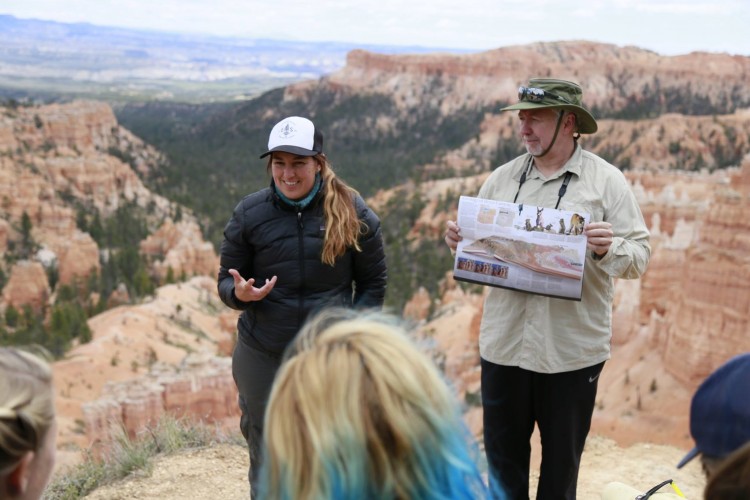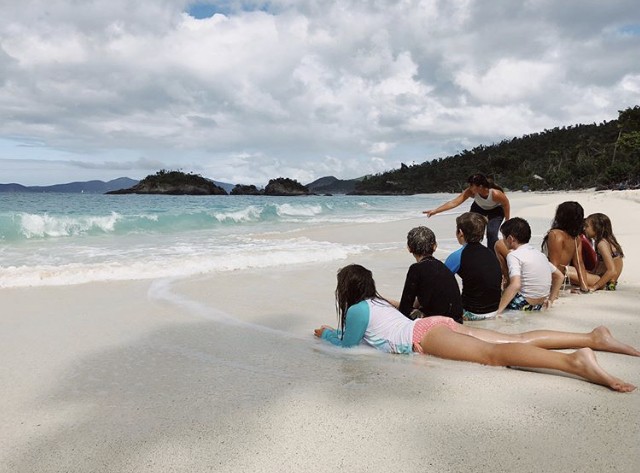Global Collabinar: Building Career Pathways & Networks for Underrepresented STEM Students
June 11, 2019
Building Career Pathways and Networks for Underrepresented STEM Students
Tuesday, June 11, 2019
1:00pm-3:00 PM PST
At this Collabinar, we heard from Melissa B. Wilson, who shared her experiences working in St. John, U.S. Virgin Islands. Our discussion focused on ways to engage underrepresented students in STEM careers.
In May of 2019, Melissa graduated from Harvard University’s sustainability program with a Master of Liberal Arts in Extension Studies. Her thesis on “Reimagining the American West to Reach Half-Earth” was named Harvard University Dean’s Top Thesis Award in sustainability. Melissa uses landscape planning, spatial ecology, wilderness conservation, outdoor recreation, and experiential STEM education to build a more sustainable world. In addition, Melissa holds a Master’s Certificate in Resource Management, a Masters of Science in Environmental Education, and a Bachelors of Science in Outdoor Education with minors in Art and Environmental Studies. She has 19 years of teaching experience in both higher education and preschool-twelfth grade education.
 Following two Category 5 hurricanes
in 2017, Melissa moved to St. John, USVI to help rebuild a
preschool-12th grade school, Gifft Hill School. As the
only preschool-12th grade on the island, they opened their doors
tuition-free to all K-8 public school students after the
hurricanes in an effort to get students back in school quickly.
They have also created a new STEM pathways and network program,
and have built a series of citizen science projects with local
and national partners through this program. Melissa’s
emphasis in the Caribbean is building the human-nature
connection through green STEM career pathways for
underrepresented students.
Following two Category 5 hurricanes
in 2017, Melissa moved to St. John, USVI to help rebuild a
preschool-12th grade school, Gifft Hill School. As the
only preschool-12th grade on the island, they opened their doors
tuition-free to all K-8 public school students after the
hurricanes in an effort to get students back in school quickly.
They have also created a new STEM pathways and network program,
and have built a series of citizen science projects with local
and national partners through this program. Melissa’s
emphasis in the Caribbean is building the human-nature
connection through green STEM career pathways for
underrepresented students.
After Melissa shared her experiences, we had the opportunity to collaborate. The following questions guided our discussion:
- Our STEM pathways program is a pilot program with multiple tiers. Where else could this work? How could it be modified to help engage underrepresented STEM students in other contexts?
- What are the cultural elements of action that need to be considered when participating in citizen science or building STEM pathways/networks?
- Where can we find good mentor/role models for students?
- What organizations or universities need interns, work, or data collection completed? How might you engage them?
Details can also be found on the event flier.
About the CCS Global Collabinar Series
With support from the UC Davis Office of Global Affairs, the CCS
Global Collabinar invites our partners from across the globe to
bring us their most exciting challenges and opportunities in
community and citizen science. Each event supports mutual
learning, and advances projects and partnerships. To stay
informed about upcoming Collabinars, please
sign up here.









